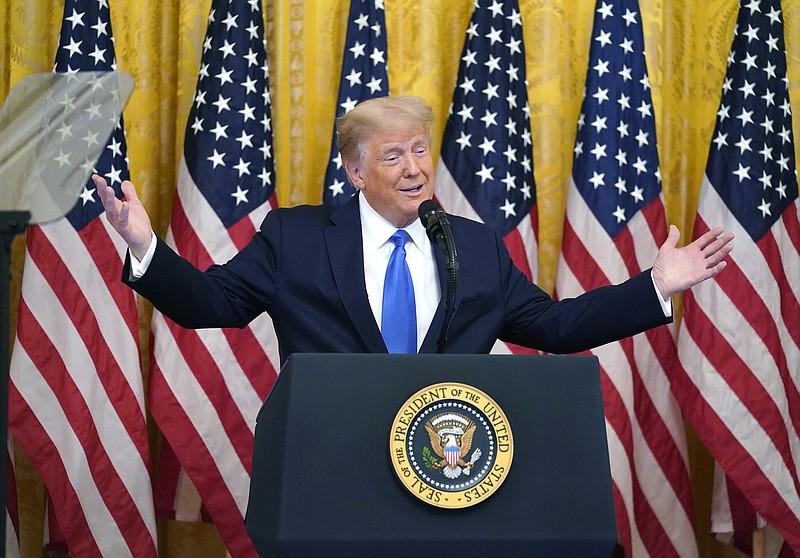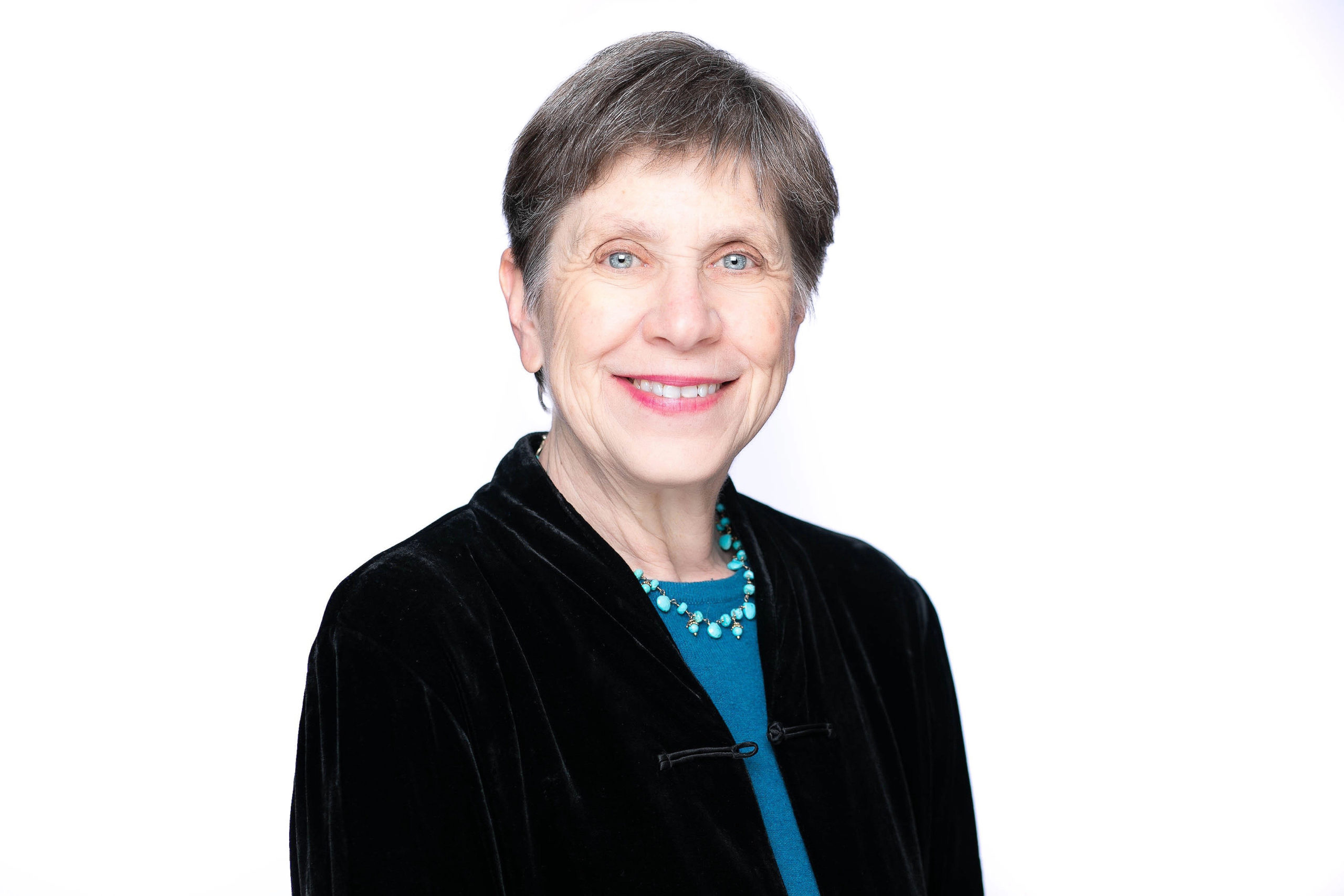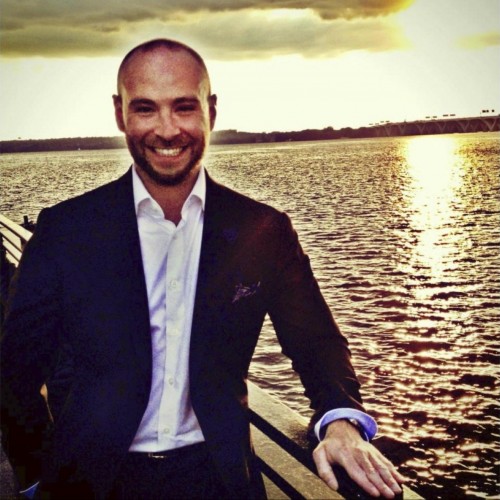YES: Brokering a deal among Israel, other Mideast nations, worthy of award
Yes, President Donald Trump deserves a Nobel Peace Prize. He's just brokered a landmark shift in the Middle East, in which two Arab nations - the United Arab Emirates and Bahrain - have normalized relations with Israel. He hosted a ceremony at the White House with officials of all three nations, where they signed "The Abraham Accords," named for their shared biblical heritage, and accompanied by a joint declaration welcoming "the progress already made between Israel and its neighbors in the region" and praising the continuing efforts to expand such friendly relations, in the interest of "lasting peace in the Middle East and around the world."
Talk of peace has usually been more mirage than reality in the Middle East, but there are signs that after decades in the desert this is a realignment toward the real deal. Trump's approach was to bypass the intransigent Palestinians, whose bosses have refused repeatedly to bargain in good faith with Israel. Instead, Trump focused on bringing together Israel and some of the Arab states based on a shared interest in countering the threat of Iran. That's a solid basis for prying loose some of the logjams in which no Arab nation has recognized Israel since Jordan in 1994 and Egypt in 1979.
Other Arab countries are showing interest in joining this club. Oman and Sudan sent envoys to attend the Abraham Accords signing ceremony at the White House. Last month, when Israel and the UAE opened direct air traffic for the first time, Saudi Arabia cooperated by opening its air space to allow Israeli commercial overflights - also for the first time.
These are big developments, the groundwork for a coalition that could help Israel, Arab nations and the United States in facing down the threat of the brutal and predatory regime in Iran, while fostering, at long last, Arab-Israeli ties conducive to prosperity and peace. No wonder this approach inspired a member of the Norwegian parliament to nominate Trump for a Nobel.
That said, there's almost no chance the Nobel Committee will opt for Trump. Not only is he a controversial American president, but the Nobel itself is an oddball prize. While widely revered as one of the world's top honors, the Nobel has been awarded over the years to an eclectic mix of true heroes, inept visionaries, and, on occasion, malign actors. If you ever find yourself wondering what Mother Teresa and Yasser Arafat had in common, they were both Nobel Peace laureates.
The criteria for the prize are a muddle, dating back to confusion on the part of the founder, Alfred Nobel, about how best to engender peace. Nobel stipulated, reasonably enough, that the prize should go to "the person who shall have done the most or the best work for fraternity between nations."
But Nobel also wanted the prize awarded to those who had done the most to achieve "the abolition or reduction of standing armies" and "the holding of peace congresses." That sounds good, but depends heavily on the circumstances.
Reducing standing armies can be fatal to deterrence, in some cases inviting war rather than preventing it. Likewise, peace congresses, per se, do not always ensure peace. President Woodrow Wilson won a Nobel for founding the League of Nations, an organization that began with the Treaty of Versailles and ended with World War II.
Since the Nobel was first given out, in 1901, four American presidents have won the Peace Prize: Theodore Roosevelt in 1906, Woodrow Wilson in 1919, and, more recently, Jimmy Carter in 2002 and Barack Obama in 2009.
Both Carter and Obama talked a lot about peace, but pursued policies of appeasement that emboldened enemies of freedom and invited conflict. Carter's tenure saw the Islamic revolution in Iran, and the Soviet invasion of Afghanistan. Obama failed to counter the rising aggression of Russia and China, led from behind as the Arab Spring spawned ISIS, and produced an Iran nuclear deal that did not block Iran's path to the bomb.
For an illuminating contrast, look to President Ronald Reagan, who built up the American military, stood up to the Soviet Union and won the Cold War. But Reagan never won a Nobel Peace Prize. Neither did World War II victors Franklin D. Roosevelt and Winston Churchill (though he did win one for literature). As far as the Nobel represents a high honor, Trump deserves it for the Abraham Accords. But if he doesn't win it, he's in good company.
Claudia Rosett is a foreign policy fellow with the Independent Women's Forum. She wrote this for InsideSources.com.
Tribune Content Agency
NO: Donald Trump has sown division at home and abroad, and inspired no one, unlike Barack Obama
Four American presidents have been awarded the Nobel Peace Prize. The first was Theodore Roosevelt, for his work to bring an end to the Russo-Japanese war. The second was Woodrow Wilson, whose Fourteen Points remain the framework upon which the liberal world order tenuously hangs. The third was Jimmy Carter, who was recognized for a lifetime of post-presidential service advancing the cause of human dignity and freedom.
When President Barack Obama was the fourth to be nominated in 2009, his Republican detractors howled in outrage. But what Obama's conservative critics missed was that the youthful president was not awarded the Nobel on the hopes of what he might accomplish, but on the audacity of hope itself - a quality Obama practically embodied, one that had propelled him to the White House.
What a contrast between then and now.
President Donald Trump would be the fifth American president to win the Nobel Peace Prize if selected by the committee. But if Trump embodies anything, it's only mendacity and fear. Where Obama said, "Yes We Can," Trump said "Only I Can." Where Obama sought to strengthen America's alliances, Trump has abrogated our treaties and abandoned our allies. Where Obama entered office with a message exhorting Americans to reject fear and choose hope, Trump did so by describing an "American carnage" - which in retrospect seems like more of a promise.
From a pandemic that has needlessly killed more Americans in a scant few months than 20 years of terrorism and war, to a torrent of police brutality, violent white nationalism and lawless vigilantism, this year alone has brought the contradictions between these two administrations into high relief. The overlapping medical, economic, societal and civil-military crises of 2020 have deepened impressions of the United States as a declining power unable to solve its own problems, let alone help anyone else with theirs. They have produced grim assessments of a former superpower reduced to the "sick man" of the 21st-century, even as a failed state. National pride is at an all-time low, and Americans have entered the final weeks of a contentious election more angry, ashamed and afraid as they've ever been.
The notion that Donald Trump - who just this summer called the world wars "beautiful," who just last week bragged about possessing a secret nuclear doomsday weapon - should be awarded the Nobel would be laughable if it weren't so outrageous.
Obama was nominated, according to former Norwegian Prime Minister Thorbjorn Jagland, on account of the aspirational tenor of his presidential campaign. "No one could deny," Jagland said, "that the international climate had suddenly improved, and that Mr. Obama was the main reason. We want to embrace the message that he stands for."
Christian Tybring-Gjedde, a far-right Norwegian parliamentarian, nominated Trump - ostensibly for his work toward a settlement between Israel and the United Arab Emirates. An agreement was signed, but both sides are already disagreeing over its interpretation, and the Palestinian Authority has rejected it outright. Even if we grant the merits of the accord on its face, however, Gjedde's motivations for nominating Trump are suspect.
He is best known inside Norway for anti-immigrant rhetoric scarcely distinguishable from that of Anders Breivik, the terrorist who slaughtered 77 people in 2011. Outside of Norway he is known as a strong supporter of Russian President Vladimir Putin, and coincidentally enough, an advocate for Norway and the European Union to legitimize Putin's illegal seizure of Crimea in 2014. He might as well have nominated Putin himself, because the Russian president is one of the few world leaders to embrace what Trump supports.
Alfred Nobel gave few guidelines to choose future recipients of his prize. But the first and most important was that they had worked for fraternity between nations. Theodore Roosevelt did that with an indefatigable spirit that brought two warring emperors to the negotiation table. Woodrow Wilson did it by uniting the people of the world, in spirit, if not in deed. Jimmy Carter did it with decades of untiring effort to make our world a better place. Barack Obama did it by inspiring people around the world with the idea of America itself.
Instead of promoting brotherhood between nations, Donald Trump has only sown division, both at home and abroad. It is insulting enough that his name will forever be associated with those other presidents. It should not mar the list of Nobel Prize recipients.
Zachery Tyson Brown, an Army veteran who served in Iraq and Afghanistan, is a security fellow at the Truman National Security Project, a founding member of the Steady State and a Military Writers Guild board member. He wrote this for InsideSources.com.
Tribune Content Agency


